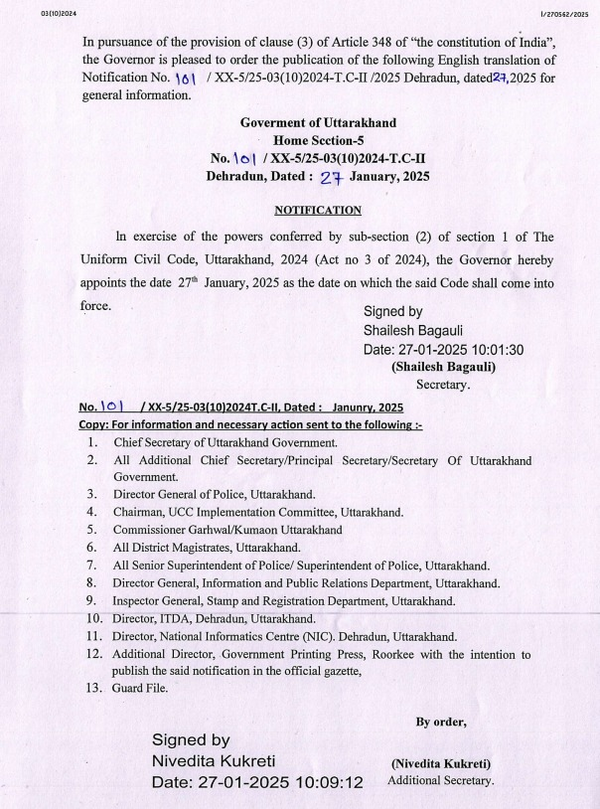NEW DELHI: Uttarakhand on Monday made history by becoming the first state to implement the Uniform Civil Code (UCC). Chief minister Pushkar Singh Dhami launched the UCC portal and issued a notification marking the adoption of the civil code.
At the launch, Dhami said, “Uniform Civil Code is a constitutional measure to end discrimination. Through this, an attempt has been made to give equal rights to all citizens. With its implementation, women’s empowerment will be ensured in the true sense. Through this, evils like Halala, polygamy, child marriage, triple talaq etc can be completely stopped. We have kept our scheduled tribes mentioned under Article 342 of the Constitution out of this code so that those tribes and their rights can be protected. On this occasion today, I would like to clarify again that the Uniform Civil Code is not against any religion or sect, there is no question of targeting anyone.”
If the credit for this goes to anyone, it goes to the people of Devbhoomi Uttarakhand, who blessed us and formed our government. Today, by implementing UCC in Uttarakhand, we are paying our true tribute to the makers of the Constitution, Babasaheb Bhimrao Ambedkar and all the respected members of the Constituent Assembly. Uniform Civil Code has been fully implemented in Uttarakhand from this very moment and the constitutional and civil rights of all the citizens of the state of Uttarakhand have become equal and from this very moment, women of all religions have got equal rights.”

What is UCC?
UCC is a set of laws that aims to standardise personal laws across religions. It addresses various issues including marriage, divorce, inheritance, and live-in relationships. It aims to ensure equal property rights and protect children’s rights, with penalties for non-compliance.
The UCC clarifies legal requirements for marriage, stating that only mentally capable individuals aged 21 (for men) or 18 (for women) who are not already married may enter into a union. Marriages can be performed according to religious customs, but registration will be mandatory to ensure legal recognition.
The law also addresses issues related to the creation and cancellation of wills and codicils under testamentary succession. Marriages solemnized before March 26, 2010, or those outside the state will be eligible for registration if legal requirements are met.




